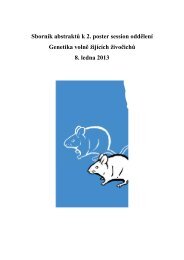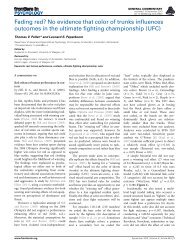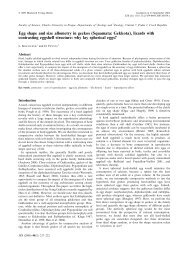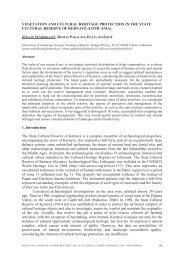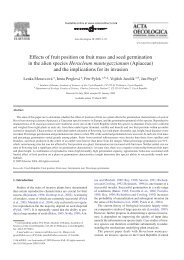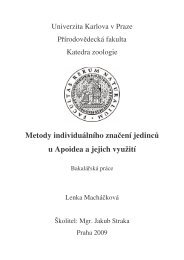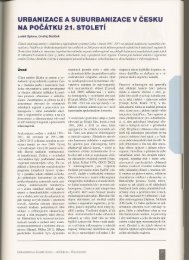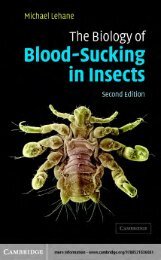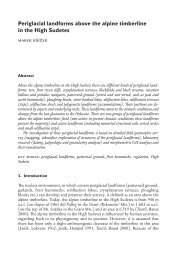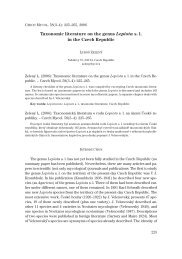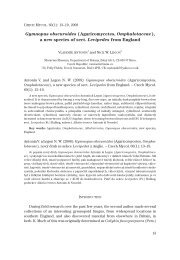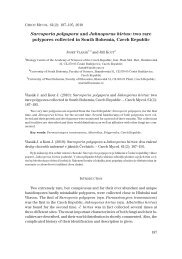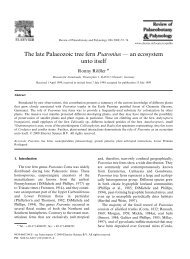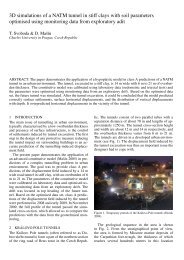Marie Altmanová - Univerzita Karlova
Marie Altmanová - Univerzita Karlova
Marie Altmanová - Univerzita Karlova
Create successful ePaper yourself
Turn your PDF publications into a flip-book with our unique Google optimized e-Paper software.
Abstract<br />
Iguanids are greatly diversed group of squamate reptiles (Reptilia, Squamata).<br />
Although there were many phylogenetical studies made, the relationships among main<br />
lineages are still unclear. In cytogenetical point of view is this group relatively conservative.<br />
In three species-rich genus only, the diversity of karyotypes is relatively considerable: Anolis,<br />
Liolaemus a Sceloporus. Diploid chromosome number varies between 19 and 48. Ancestral<br />
karyotype is defined as 2n=36, with 12 macrochromosomes and 24 microchromosomes.<br />
Morphologically the macrochromosomes are mostly metacentric, rarely acrocentric or<br />
telocentric. In karyotype evolution Robertsonian rearrangements dominate apparently, where<br />
number of chromosome arms is preserved. Interspecific variability or variability between<br />
populations were observed. Sex seems to be determined by genotype for whole group (GSD).<br />
Across the group probably attended conditionally to multiple differentiation of sex<br />
chromosomes. In 75 of 219 caryotyped were detected XX/XY type of sex chromosomes or<br />
derived multiple sex system X 1X 1X 2X 2/X 1X 2Y. The transition from multiple sex<br />
chromosomes back to XX/XY type was observed in one species. Chromosome Y shows<br />
morphological variability in size and shape, from microchromosom to huge metacentric<br />
macrochromosom. Homology of sex chromosoms need to be tested by molecular-<br />
cytogenetical methods.<br />
Key words: Iguanidae, iguanas, karyotype, GSD, sex chromosomes, XY, multiple sex<br />
chromosomes<br />
5



